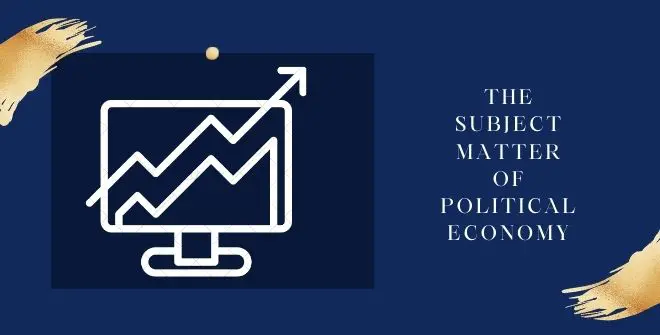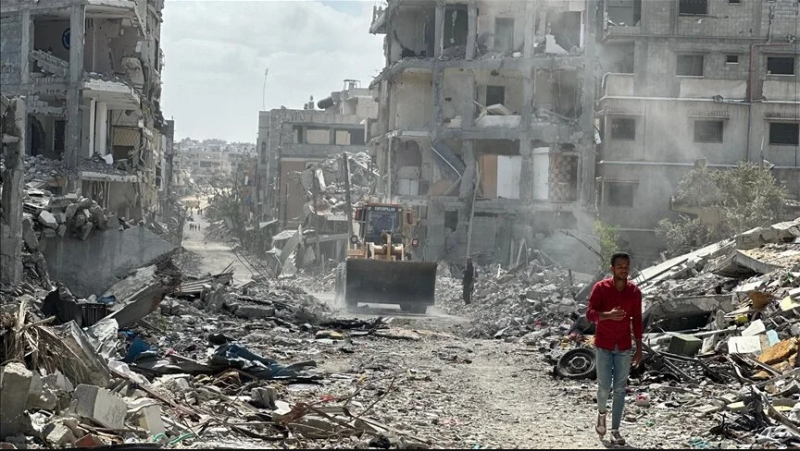Zafar Iqbal
Political economy is a branch of social science that studies the relationship between economic systems and political systems, using various tools and methods from economics, political science, sociology, and history. Political economy examines how economic theories, such as capitalism, socialism, and communism, work in the real world, and how public policies, political institutions, and social factors affect the production, distribution, and consumption of goods and wealth. Political economy also analyzes how political forces shape global economic interactions, such as trade, investment, migration, and environmental issues.
The concept of political economy has a long history of intellectual inquiry, dating back to the ancient Greeks, who were interested in the nature and causes of wealth and power in human societies. The term political economy was coined in the 16th century by the mercantilist school, which advocated a strong role for the state in economic regulation and protectionism. The mercantilist view was challenged by the classical political economists, such as Adam Smith, David Hume, and Francois Quesnay, who emphasized the benefits of free trade, market competition, and laissez-faire policies. The classical political economy was further developed by David Ricardo, Thomas Malthus, and John Stuart Mill, who introduced the concepts of comparative advantage, population growth, and utilitarianism.
The 19th and 20th centuries witnessed the emergence of various perspectives and schools of thought in political economy, such as the Marxist, institutionalist, Keynesian, neoclassical, and neoliberal approaches. Each of these perspectives offered different explanations and solutions for the economic and social problems of their times, such as class conflict, market failure, economic crisis, inequality, and globalization. Political economy also became more interdisciplinary and diversified, incorporating insights from sociology, anthropology, psychology, history, and culture. Some of the influential thinkers and contributors to political economy in this period include Karl Marx, Max Weber, Joseph Schumpeter, John Maynard Keynes, John Kenneth Galbraith, Milton Friedman, and Amartya Sen.
Political economy is significant for both national and international politics, as it helps us understand the relationship between political power and economic decisions, and the implications of these decisions for the welfare of individuals and societies. Political economy can help us evaluate the effectiveness and efficiency of public policies, such as taxation, spending, regulation, and redistribution. Political economy can also help us identify the sources and consequences of political conflict and cooperation, such as interest groups, political parties, social movements, and international organizations. Political economy can also help us critically examine the assumptions and values underlying different economic and political systems, and challenge the dominant or hegemonic narratives and ideologies.
Please, subscribe to the monthly magazines of republicpolicy.com
Some recommendations to develop a solid political economy for a country are:
- Promote a democratic and inclusive political system that respects human rights, rule of law, and accountability, and that allows for meaningful participation and representation of all segments of society.
- Foster a competitive and diversified economic system that encourages innovation, entrepreneurship, and productivity, and that provides equal opportunities and access to resources and markets for all economic agents.
- Balance the roles and responsibilities of the state, the market, and the civil society in the provision and regulation of public goods and services, such as education, health, infrastructure, and security, and in the protection and promotion of the common good and the environment.
- Strengthen the institutional and regulatory frameworks that support the functioning and stability of the political and economic systems, such as the constitution, the judiciary, the central bank, the fiscal and monetary policies, and the anti-corruption and anti-trust laws.
- Enhance the regional and global integration and cooperation of the country with other countries and organizations, based on mutual respect, mutual benefit, and mutual responsibility, and in accordance with the principles of multilateralism, solidarity, and sustainability.
International political economy (IPE) is a branch of social science that studies the relationship between economic systems and political systems, using various tools and methods from economics, political science, sociology, and history. IPE examines how economic theories, such as capitalism, socialism, and communism, work in the real world, and how public policies, political institutions, and social factors affect the production, distribution, and consumption of goods and wealth. IPE also analyzes how political forces shape global economic interactions, such as trade, investment, migration, and environmental issues.
The concept of IPE has a long history of intellectual inquiry, dating back to the ancient Greeks, who were interested in the nature and causes of wealth and power in human societies. The term political economy was coined in the 16th century by the mercantilist school, which advocated a strong role for the state in economic regulation and protectionism. The mercantilist view was challenged by the classical political economists, such as Adam Smith, David Hume, and Francois Quesnay, who emphasized the benefits of free trade, market competition, and laissez-faire policies. The classical political economy was further developed by David Ricardo, Thomas Malthus, and John Stuart Mill, who introduced the concepts of comparative advantage, population growth, and utilitarianism.
The 19th and 20th centuries witnessed the emergence of various perspectives and schools of thought in IPE, such as the Marxist, institutionalist, Keynesian, neoclassical, and neoliberal approaches. Each of these perspectives offered different explanations and solutions for the economic and social problems of their times, such as class conflict, market failure, economic crisis, inequality, and globalization. IPE also became more interdisciplinary and diversified, incorporating insights from sociology, anthropology, psychology, history, and culture. Some of the influential thinkers and contributors to IPE in this period include Karl Marx, Max Weber, Joseph Schumpeter, John Maynard Keynes, John Kenneth Galbraith, Milton Friedman, and Amartya Sen.
The current dynamics of IPE in the world are shaped by several factors, such as:
- The COVID-19 pandemic and its impacts on health, trade, finance, development, and governance. The pandemic has exposed the vulnerabilities and inequalities of the global system, as well as the need for cooperation and coordination among states and other actors. The pandemic has also accelerated the digital transformation of the economy, creating new opportunities and challenges for innovation, productivity, and regulation.
- The rise of China and its implications for the global balance of power and order. China has become a major economic and political actor in the world, challenging the dominance and influence of the United States and its allies. China has also initiated ambitious projects, such as the Belt and Road Initiative and the Regional Comprehensive Economic Partnership, to expand its economic and strategic interests in Asia and beyond.
- The resurgence of nationalism and populism and their effects on democracy and multilateralism. Many countries have witnessed the rise of political movements and leaders that appeal to nationalist sentiments and populist agendas, often opposing globalization, immigration, and international cooperation. These movements and leaders have also undermined democratic norms and institutions, as well as the legitimacy and effectiveness of multilateral organizations, such as the United Nations, the World Trade Organization, and the European Union.
- The urgency of addressing the climate crisis and its consequences for the environment and society. The world is facing a critical challenge of mitigating and adapting to the effects of climate change, such as rising temperatures, extreme weather events, sea level rise, and biodiversity loss. The climate crisis requires collective action and responsibility from all actors, especially the major emitters of greenhouse gases, to reduce emissions and enhance resilience. The climate crisis also poses opportunities for green growth and development, as well as for global solidarity and justice.
These are some of the main issues and trends that define the current state of IPE in the world. IPE is a dynamic and complex field of study that helps us understand the interplay of politics and economics in the global system and the implications of these interactions for the welfare of individuals and societies.
Please, subscribe to the YouTube channel of republicpolicy.com

















